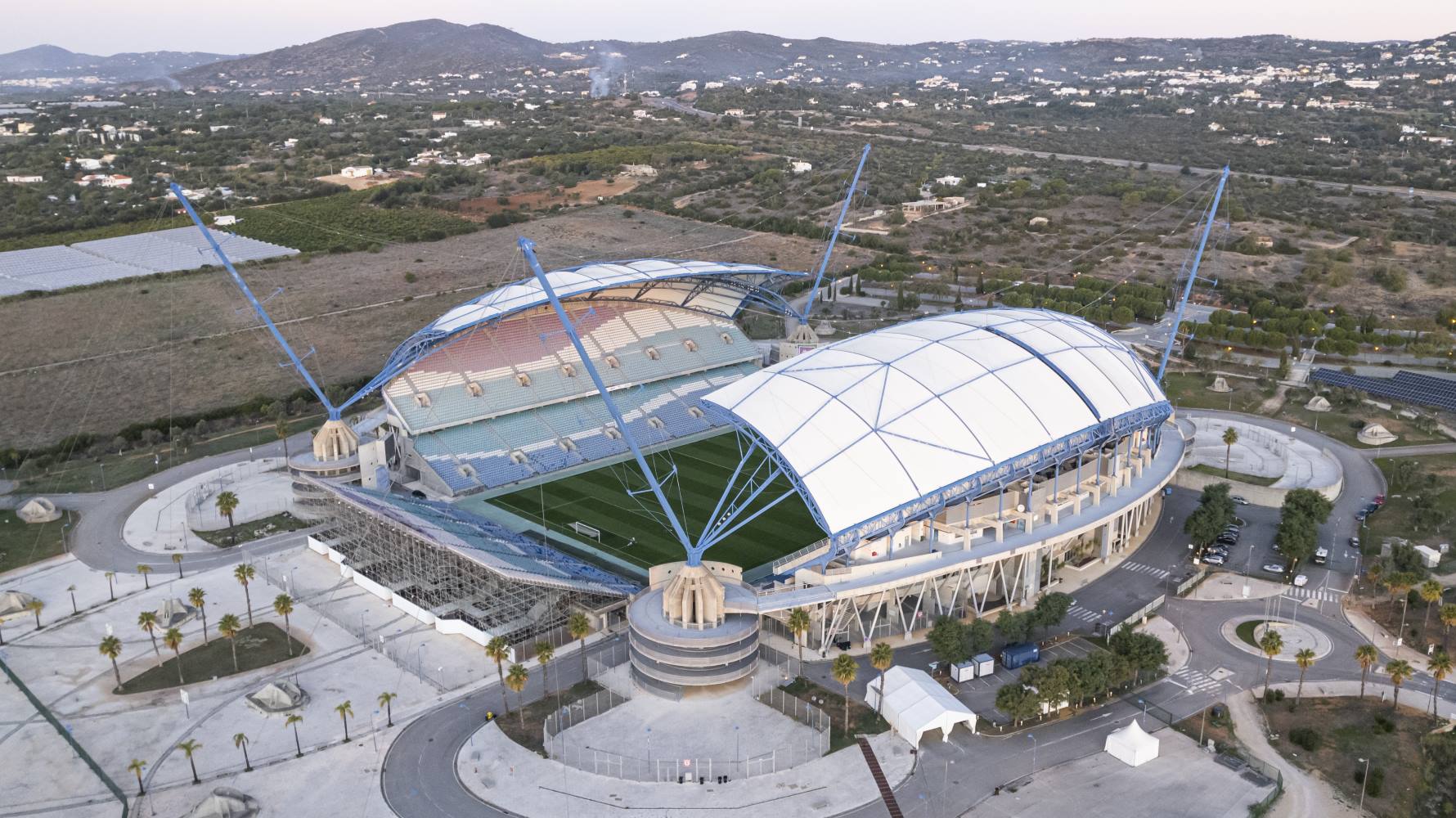
Portugal, a country known for its rich history, stunning landscapes, and passionate love for football, is home to some of the most iconic football stadiums in the world. From the electric atmosphere of Estádio da Luz in Lisbon to the architectural marvel that is Estádio do Dragão in Porto, each stadium has its own unique story and significance. In this blog post, we'll take you on a tour of 24 fascinating facts about these football sanctuaries. Whether you're a die-hard football fan or simply curious about Portuguese culture, these insights will give you a glimpse into the heart and soul of Portugal's football scene. Get ready to be amazed by the history, architecture, and unforgettable moments that these stadiums have witnessed.
Discovering Portugal's Iconic Football Stadiums
Portugal, known for its rich history, stunning landscapes, and vibrant culture, also boasts some of the most iconic football stadiums in the world. These arenas are not just venues for thrilling matches but are landmarks that tell stories of triumph, passion, and community spirit.
-
Estádio do Dragão in Porto, home to FC Porto, stands as a modern architectural marvel. Opened in 2003, it has a seating capacity of over 50,000 and is known for its unique dragon-themed roof design.
-
Estádio da Luz, located in Lisbon, serves as the fortress for SL Benfica. With a capacity to hold more than 64,000 fans, it's Portugal's largest stadium and hosted several matches during the UEFA Euro 2004.
-
The Estádio José Alvalade, home to Sporting CP, is another Lisbon gem. Renovated for the Euro 2004, it can accommodate around 50,000 spectators and is celebrated for its vivid green seating, reflecting the club's colors.
Historical Significance of Portuguese Stadiums
-
Many stadiums in Portugal are steeped in history, with Estádio do Restelo in Belém being a prime example. Home to Belenenses, it's known for its picturesque location, offering views of the Tagus River and the Jerónimos Monastery.
-
Estádio dos Barreiros, located in Madeira, is the home ground of CS Marítimo. Renovated in 2016, this stadium is unique for its cliff-side location, providing breathtaking views of the Atlantic Ocean.
-
The Estádio D. Afonso Henriques in Guimarães is named after the first King of Portugal, highlighting the deep connection between Portuguese culture and football. It's the home of Vitória SC and can seat over 30,000 fans.
Technological Advancements in Stadiums
-
Modern Portuguese stadiums are equipped with cutting-edge technology. For instance, Estádio do Dragão features an advanced lighting system that can create spectacular pre-game shows.
-
Estádio da Luz has implemented a state-of-the-art drainage system, ensuring the pitch remains playable even under heavy rain, showcasing the blend of functionality and innovation.
-
Estádio Municipal de Braga, famously known as "The Quarry," integrates seamlessly into its natural surroundings and uses technology to minimize its environmental impact, making it one of the most unique football stadiums globally.
Community and Culture
-
Football stadiums in Portugal serve as community hubs, where fans gather to support their teams, creating a vibrant atmosphere that's palpable even outside match days.
-
Estádio do Bessa, home to Boavista FC, is renowned for its close-knit community feel, with local cafes and shops buzzing with football talk and camaraderie.
-
The tradition of "claques," or organized fan groups, is strong in Portugal, with stadiums like Estádio da Luz and Estádio José Alvalade being epicenters for these passionate supporters, who add color and life to the stands with their chants and banners.
Sustainability Efforts
-
Portuguese football clubs are increasingly focusing on sustainability. Estádio do Dragão and Estádio da Luz have implemented measures to reduce water and energy consumption, leading the way in eco-friendly initiatives.
-
The Estádio Municipal de Braga not only blends with its natural environment but also promotes green practices, including rainwater harvesting for pitch irrigation.
-
Solar panels have been installed at various stadiums, like Estádio José Alvalade, to harness renewable energy, reducing the carbon footprint of these sporting venues.
Architectural Marvels
-
Beyond their primary function, Portuguese stadiums are architectural masterpieces. Estádio Municipal de Braga, carved from a quarry, stands as a testament to innovative design, merging nature with modern architecture.
-
Estádio da Luz is not just a sports venue but a landmark of Lisbon, with its imposing structure and elegant curves reflecting the city's contemporary aesthetics.
-
The renovation of Estádio José Alvalade introduced bold colors and geometric patterns, making it a visual spectacle and a symbol of modern Portuguese architecture.
Future of Portuguese Stadiums
-
Plans for future renovations and technological upgrades are in place for several stadiums, ensuring they remain at the forefront of innovation and comfort for fans and players alike.
-
With the growing focus on sustainability, more stadiums are expected to adopt green technologies, setting new standards for eco-friendly sports venues around the world.
-
The continued importance of football stadiums in Portugal's social and cultural fabric promises that these arenas will evolve, not just as places for sports, but as landmarks of community pride and architectural ingenuity.
-
As Portugal continues to produce world-class football talent, its stadiums will undoubtedly play a crucial role in nurturing future generations, providing them with state-of-the-art facilities to hone their skills.
-
The integration of digital technology, such as augmented reality experiences for fans and advanced analytics for teams, is set to transform the matchday experience, making Portuguese stadiums even more attractive destinations for football enthusiasts.
-
Lastly, the commitment to accessibility and inclusivity is driving changes in stadium design and services, ensuring that everyone, regardless of ability, can enjoy the thrill of the game in a safe and welcoming environment.
A Final Whistle on Portuguese Stadiums
Wrapping up, our journey through Portugal's football stadiums has been nothing short of a thrilling ride. From the iconic Estádio da Luz, home to SL Benfica, to the architectural marvel that is Estádio do Dragão for FC Porto fans, each stadium carries its unique story and an electric atmosphere on match day. Not to forget, the historical Estádio José Alvalade, where Sporting CP showcases their talent, adds to the rich football tapestry of Portugal. These stadiums are more than just buildings; they're hallowed grounds where history is made, legends are born, and fans unite with a single heartbeat. Whether you're a football fanatic or just someone who appreciates the beauty of sports architecture, Portugal's stadiums are a testament to the country's love for the beautiful game. Next time you're planning a visit, make sure to catch a game and experience the magic firsthand.
Was this page helpful?
Our commitment to delivering trustworthy and engaging content is at the heart of what we do. Each fact on our site is contributed by real users like you, bringing a wealth of diverse insights and information. To ensure the highest standards of accuracy and reliability, our dedicated editors meticulously review each submission. This process guarantees that the facts we share are not only fascinating but also credible. Trust in our commitment to quality and authenticity as you explore and learn with us.


